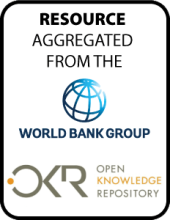Land Library Search
Through our robust search engine, you can search for any item of the over 73,000 highly curated resources in the Land Library.
If you would like to find an overview of what is possible, feel free to peruse the Search Guide.
/ library resources
Showing items 1 through 9 of 451.A discussion note from Mekong Region Land governance (MRLG) summarizing findings and recommendations of a multi-stakeholder initiative and study tour conducted in Southern Laos, to study the social and environmental practices of two large scale companies holding large scale concessions in Lao PDR
Shaping the Food System to Deliver Jobs is the fourth paper in a series on The Future of Food. This paper focuses on how the food system can deliver jobs.
Following a chaotic political decolonization, from 1975 to 2000, the Comoros failed to sustain the extension of private land ownership pursued since the beginning of the twentieth century and to implement land reform prepared with the assistance of the FAO and the UNDP but abandoned after the ass
An analysis paper by Future Directions International on livelihood considerations and food security in the Lower Mekong countries, published in May 2016.
An analysis paper by Dustin Hoasa on the World Bank Group's lending practices, part 2 in Inclusive Development International (IDI)'s 'Outsourcing Development' series.
A comparative study of land rights systems in Southeast Asia and the potential of national and international legal frameworks and guidelines.
In rural societies of low- and middle-income countries, land is a major measure of wealth, a critical input in agricultural production, and a key variable for assessing agricultural performance and productivity.
This report was prepared as part of the
World Bank engagement in the Philippines to support Islamic
Finance and Financial Inclusion. It provides an overview on
the context for the development of Islamic finance in the
Sustainable development goals (SDGs)
placed access to basic services at the center of
international development in 2016-2030. Out of 17 goals,
five address the access of poor people to basic services: to





